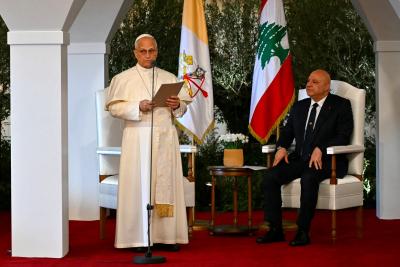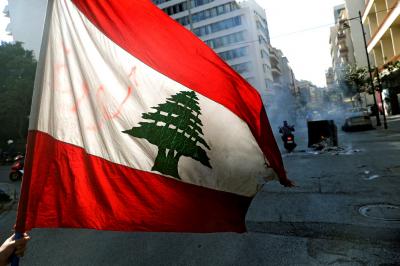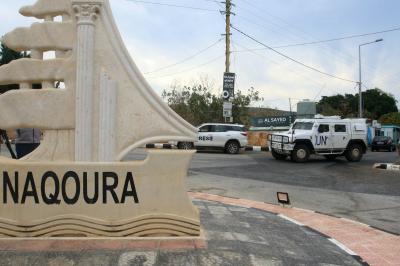Alsafa News: Saudi Arabia reduced its production by one million barrels/day in July, extended twice until August, then until September. What is the aim of this influential OPEC country?
Francis Perrin: At the last OPEC+ ministerial meeting on June 4, Saudi Arabia indeed announced a voluntary reduction of its production by 1 million barrels per day in July. The country then maintained this reduction in August and September and, very recently, indicated that it would be extended until the end of 2023. This latest announcement helped push up oil prices, with Brent exceeding and slightly surpassing the $90 per barrel mark. This is precisely what the Saudi kingdom, the world's leading crude oil exporter, and other OPEC+ members wanted. In the spring, for instance, in mid-March or early May, the price of Brent crude, one of the main reference crudes in the world, had dropped just above $70/b. This level was deemed too low by these exporting countries, who feared oil prices might fall further due to a concerning global economic situation. The OPEC+ strategy to reduce supply, in which Saudi Arabia played a key role, has clearly paid off. Brent's price rose about 25% between late June and September 6, a significant achievement for crude exporters, certainly aided by an increase in global oil demand.
Alsafa News: Russia reduced its production by 500,000 barrels/day in August, then by 300,000 barrels/day in September. What is your take on this decision?
Francis Perrin: It's the same logic. Russia is also part of OPEC+ and, moreover, needs higher crude prices due to the war in Ukraine and Western economic sanctions targeting its hydrocarbon sector. The country indicated that it reduced its oil exports by 500,000 b/d in August, then this volume dropped to 300,000 b/d in September, and it's now planned to maintain this decrease until the end of the year. However, the impact on oil markets from Russian decisions is less than that resulting from Saudi announcements. The figures are lower, Russian announcements aren't always deemed reliable, and the country's oil exports (crude and refined) were already on a decline. They were estimated at 8 Mb/d in December 2022 by the International Energy Agency (IEA) and 7.3 Mb/d in July 2023.
Alsafa News: Iran, Argentina, Egypt, Ethiopia, Saudi Arabia, and the United Arab Emirates will be part of the emerging countries block from January 2024. Can the rise of the BRICs, with the addition of Saudi Arabia, change OPEC's stance towards the West?
Francis Perrin: It's interesting to note that this expansion of what has been called the BRICS includes six countries, five of which are oil producers, with Ethiopia being the exception. Among these five, three are significant or major oil countries - Saudi Arabia, Iran, and the UAE - and two, Egypt and Argentina, are medium-sized producers. The first three are also OPEC (13 countries) and OPEC+ (23 countries) members.
This is a major boost for the BRICS, but it doesn't change much for OPEC and OPEC+. These organizations don't position themselves against the West. Their goal is to defend the interests of oil-exporting countries while considering the interests of consumers and the oil industry - the three key components of the oil world. Discussions within these two entities focus on oil demand, supply, stocks, prices, investments, all without specific political or geopolitical aims. After all, these 13 or 23 countries differ in almost every aspect, except they all rely on oil. Hence, it's in their best interest to cooperate to increase their influence on the oil market and oil prices.
Alsafa News: Is the expansion in the number of BRICs member countries a real diplomatic success for Iran, a heavyweight of OPEC?
Francis Perrin: It's primarily a success for the current BRICs members who agreed on this list of six joining countries. It's also a success for these six countries since many others wanted to join the BRICS, but there wasn't room for everyone. Among the selected six, three are from the Middle East (Saudi Arabia, UAE, and Iran), three are Arab countries (Saudi Arabia, Egypt, and UAE), and four belong to the Middle East/North Africa region. This is also a success for this region and the Arab world. And indeed, Iran has every reason to celebrate its candidacy acceptance, given it's under American economic sanctions, re-imposed by the Trump administration in 2018, and it's relatively isolated in its support for Russia in the Ukraine war. Moreover, the simultaneous entry of Iran and Saudi Arabia into the BRICS consolidates the rapprochement between these two countries, which began to materialize in March 2023 under China's auspices. For Iran, this reconciliation and joining the BRICS are two major diplomatic successes of 2023. As in rugby, they will still have to convert this success, but the game isn't over yet.
Please post your comments on:
[email protected]
 Politics
Politics














